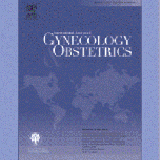
Abstract
Objective
To develop a standardized process of perinatal mortality audit (PMA) and improve the capacity of health workers to identify and correct factors underlying preventable deaths in Fiji.
Methods
In a pilot study, clinicians and healthcare managers in obstetrics and pediatrics were trained to investigate stillbirths and neonatal deaths according to current guidelines. A pre-existing PMA datasheet was refined for use in Fiji and trialed in three divisional hospitals in 2011–12. Key informant interviews identified factors influencing PMA uptake.
Results
Overall, 141 stillbirths and neonatal deaths were analyzed (57 from hospital A and 84 from hospital B; forms from hospital C excluded because incomplete/illegible). Between-site variations in mortality were recorded on the basis of the level of tertiary care available; 28 (49%) stillbirths were recorded in hospital A compared with 53 (63%) in hospital B. Substantial health system factors contributing to preventable deaths were identified, and included inadequate staffing, problems with medical equipment, and lack of clinical skills. Leadership, teamwork, communication, and having a standardized process were associated with uptake of PMA.
Conclusion
The use of PMAs by health workers in Fiji and other Pacific island countries could potentially rectify gaps in maternal and neonatal service delivery.